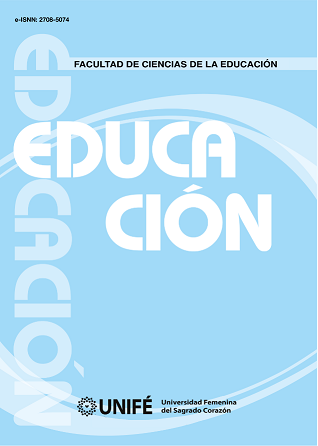Evaluación, acreditación, calidad educativa e IPEBA: Cuidado con las utopías, la matriz y la imposición
DOI:
https://doi.org/10.33539/educacion.2011.n17.1437Keywords:
Whole quality, utopía, cognitive learning, non-cognitive learning, institutional management.Abstract
In view of the great expectation and hope in Peru caused by the launching of the National System of Evaluation, Accreditation and Certification of the Ouality in Education (SINEACE), the author reviews the legal dispositions and normsreferringtoSINEACEANDIPEBAanditsmanagement guidelines (2011). Agreeing with the success of the Evaluation andAccreditation system, he calIs the attention to an apparent and excessive optimismwhich could be leading to a utopian situation transforming then to a national educational frustration.
The concern increases when faced with a legal and standardized analysis, the evaluative scheme proposed by IPEBA is not shown as a whole evaluation because it is chiefly concentrated in management evaluation, leaving apart cognitive and noncognitive learning aspect s.
In the other hand, the author insists in that SINEACE and its components do not warranty the quality in education, as it is deduced from the legal and regulatory framework, but helps to promete it.
Furthermore, he recommends the free teaching and in the same way, let educational institutions according to their own view, to fix sorne own standards, factors or criteria and indicators for Evaluation and Accreditation, and not being under what it is recommended by the State through IPEBA, organism for Basic Education.
Nevertheless, we can saythat IPEBA's work is very significant, and has produced guiding documents as a sign of effort and dedication



